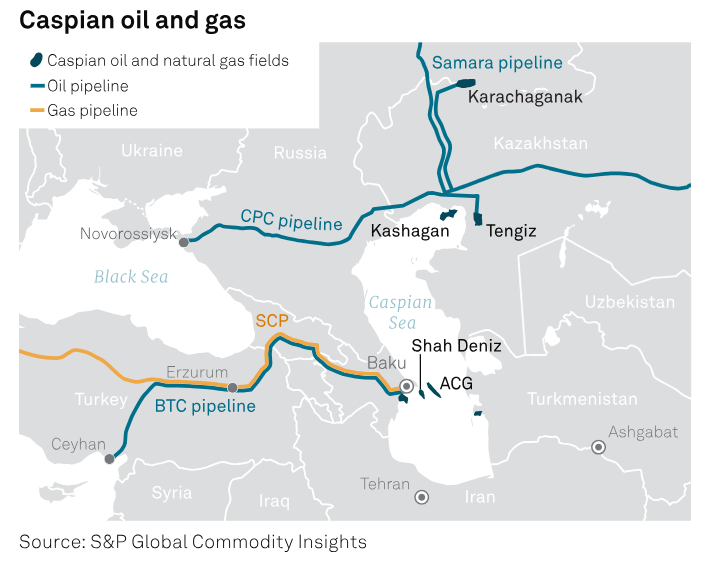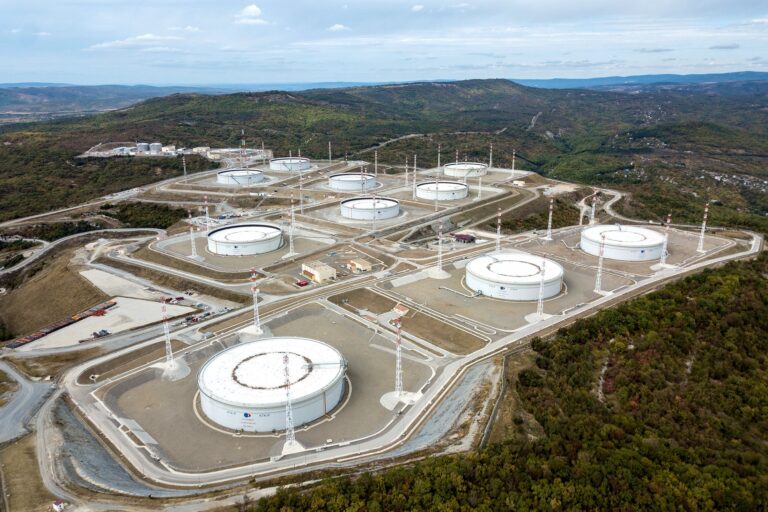Russian Propaganda Links Drone Strike to U.S.-Ukraine Relations
Russian propaganda is spreading narratives that accuse Ukraine of carrying out terrorist attacks on foreign-owned infrastructure. Russian Deputy Prime Minister Alexander Novak claimed that the drone attack on the Caspian Pipeline Consortium (CPC) facility was a response to President Trump’s stance on peace talks with Moscow.
The Kremlin has directed state media to portray the February 17, 2025, drone strike on the Kropotkinskaya station as Ukraine’s retaliation against Trump’s diplomatic position. The facility, part of the CPC, was struck by at least seven drones, causing significant damage and potentially reducing Kazakhstan’s oil exports by 30% for up to two months. CPC has remained exempt from international sanctions against Russia, allowing it to operate without the evasive practices seen in sanctioned entities.
CPC’s Role in Russia’s War Effort
Ukraine’s armed forces have consistently targeted Russia’s oil and gas sector, as it plays a crucial role in supplying the Russian military. While CPC primarily transports Kazakh oil through Russia to global markets, recent events indicate that its infrastructure may have dual uses, serving both civilian and military logistics.
Disruptions to CPC operations could impact Russia’s military fuel supply, especially if the pipeline infrastructure is being used to support the war effort. Though CPC is officially designated for civilian energy transport, its facilities may also play a role in Russia’s military logistics network, making them a legitimate strategic target.
Russia’s Sensitivity to Oil Refinery Attacks
Russia reacts sharply to attacks on its oil refineries due to their central role in the national economy. Oil and petroleum products remain key revenue sources for the Russian state budget. Damage or destruction of refineries leads to production losses, rising domestic fuel prices, and declining export revenues.

Drone strikes on Russia’s energy infrastructure have caused fuel shortages, affecting transportation and agriculture and sparking public discontent. Repeated strikes also expose weaknesses in Russia’s air defense systems, eroding confidence in the military and political leadership while fueling panic among businesses and local populations. The Russian government has attempted to downplay the extent of the attacks to prevent unrest but is actively seeking ways to retaliate, potentially through intensified strikes on Ukrainian civilian targets.
Thus, attacks on such facilities not only inflict economic losses on Russia but also undermine its internal stability and credibility.
Russia’s Use of CPC to Evade U.S. Sanctions
According to sources in European diplomatic circles, Moscow’s response to the Kropotkinskaya station attack may be linked to allegations that Russia was covertly exporting its own oil from Novorossiysk under the guise of Kazakh crude. Reports suggest that Russian oil was being loaded onto tankers without proper certificates of origin, using the so-called “shadow fleet” to bypass U.S. sanctions.
Similar fraudulent practices were employed in the export of grain from occupied Ukrainian territories. By falsifying documentation, Russia avoided scrutiny from importers, as the oil was sold within the price cap imposed by Western sanctions.
This suggests that the Kremlin may be leveraging the attack as a pretext to withdraw from diplomatic negotiations while blaming Kyiv and Washington for undermining the process.




